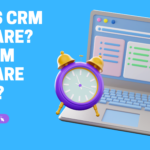In today’s fast-paced real estate market, efficiency and streamlined operations are the hallmarks of successful investment ventures. Central to achieving this efficiency is the adoption of specialized tools tailored to the unique needs of the industry, such as Real Estate Investor CRM. This detailed exploration will dive into how Real Estate Investor CRM can significantly enhance the productivity and profitability of real estate investment businesses, ensuring they remain competitive and responsive in a dynamic market.
Understanding Real Estate Investor CRMs
A Real Estate Investor CRM (Customer Relationship Management) system is designed specifically to manage the interactions with current and potential real estate clients and partners. Unlike generic CRM systems, those developed for real estate investors are customized to handle the nuances and specific demands of the real estate market, including lead management, deal tracking, asset management, and investor relations.
The Strategic Advantage of Real Estate Investor CRMs
1. Centralized Data Management
One of the primary advantages of a Real Estate Investor CRM is its ability to centralize data. This means all information about properties, investors, transactions, and communications is stored in one place. This accessibility allows for quick retrieval of information, facilitating better decision-making and more efficient management of day-to-day operations.
2. Enhanced Lead Generation and Conversion
Real Estate Investor CRMs excel in managing a vast array of lead sources and optimizing them to enhance conversion rates. By tracking the journey of each lead from initial contact to final investment, these systems help real estate professionals understand which tactics are most effective, enabling them to tailor their strategies accordingly.
3. Improved Investor Relations
Maintaining strong relationships with investors is critical in real estate investment. Real Estate Investor CRMs provide tools to manage investor interactions meticulously, ensuring that investors are regularly updated about their investments’ status and available new opportunities. This ongoing engagement not only fosters trust but also aids in retaining and attracting more capital.
4. Automation of Routine Tasks
Automation is another significant benefit offered by Real Estate Investor CRMs. These systems can automate routine administrative tasks such as sending follow-up emails, updating records, and scheduling meetings. Automation not only saves time but also reduces the likelihood of human error, enhancing overall operational efficiency.
5. Data-Driven Insights
With built-in analytics tools, Real Estate Investor CRMs can process vast amounts of data to provide actionable insights. These insights can guide investment decisions, highlight trends in the real estate market, and optimize marketing strategies. By leveraging data, real estate investors can make informed decisions that align with market dynamics and investor expectations.
Implementing a Real Estate Investor CRM: Best Practices
The successful implementation of a Real Estate Investor CRM is critical to realizing its full benefits. Below are some best practices to consider:
Customization According to Business Needs
Every real estate investment business has unique needs based on its market focus, size, and operational style. It is crucial to customize the CRM to these specific requirements to ensure it adds value.
Seamless Integration with Other Tools
The CRM should integrate seamlessly with other tools used in the business, such as financial software, email systems, and property management tools. Integration ensures that the CRM acts as a central hub for all operations, enhancing efficiency.
Training and Support
Effective training for all users is essential to ensure they are comfortable using the new system. Ongoing support should also be available to address any issues that arise during use.
Data Security
Given the sensitivity of the information handled by Real Estate Investor CRMs, robust security measures are essential. Ensure that the CRM provider offers strong security features to protect data integrity and confidentiality.
Conclusion
Investing in a Real Estate Investor CRM can transform the operational dynamics of a real estate investment business. By enhancing efficiency, improving investor relations, and enabling data-driven decision-making, a Real Estate Investor CRM is not just a tool but a strategic asset that can significantly influence the success of real estate investment activities.
FAQs
Q: Do I really need a CRM for my real estate investment business?
A: Yes, a CRM can significantly boost your efficiency by streamlining operations, improving lead management, and providing valuable data insights.
Q: Can a CRM help with communication?
A: Absolutely. A CRM centralizes all your communications, making it easier to keep track of interactions and maintain consistency.
Q: Are there affordable CRM options for small businesses?
A: Yes, there are many affordable CRM solutions tailored to small businesses. It’s important to evaluate your needs and choose one that offers the best value for your budget.













